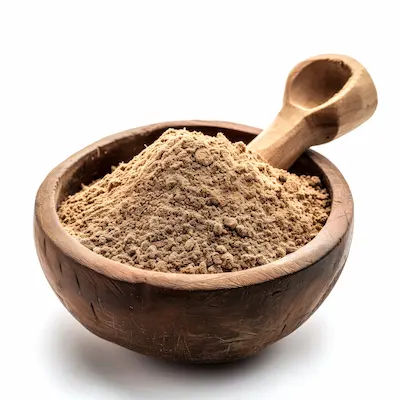Vaginal Discharge: Types and Treatment Options
Know about the vaginal discharge, types of discharge, and what to do to remove the infection. Learn ways to keep the vagina healthy.

Written by Dr. J T Hema Pratima
Reviewed by Dr. Dhankecha Mayank Dineshbhai MBBS
Last updated on 13th Jan, 2026

Introduction
Vaginal discharge is a normal and healthy part of a woman’s reproductive system. It helps keep the vagina clean, prevents infections, and maintains a healthy balance of bacteria. However, changes in colour, consistency, odour, or amount can sometimes indicate an underlying issue.
Understanding the different types of vaginal discharge and when to seek treatment can help you maintain good vaginal health.
What Is Vaginal Discharge?
Vaginal discharge is a fluid produced by glands in the cervix and vagina. It carries away dead cells and bacteria, keeping the vaginal area clean and infection-free.
The amount and type of discharge can vary depending on factors like:
- Menstrual cycle
- Hormonal changes (pregnancy, menopause, birth control)
- Sexual activity
- Stress or diet
Consult a Gynaecologist for Personalised Advice
Types of Vaginal Discharge
Not all discharge is the same. Here’s a breakdown of different types and what they might mean:
1. Normal (Healthy) Discharge
- Appearance: Clear or milky white
- Consistency: Thin and slippery or slightly sticky
- Odour: Mild or odourless
- When it occurs: Throughout the menstrual cycle, especially around ovulation
This type of discharge is completely normal and indicates a healthy vagina.
2. White and Clumpy (Yeast Infection)
- Appearance: Thick, white, and cottage cheese-like
- Odour: Usually odourless
- Other symptoms: Itching, redness, burning sensation
- Possible cause: Overgrowth of yeast (Candida)
What to do:
- Over-the-counter antifungal creams or suppositories can help.
- Wear breathable cotton underwear.
- Avoid douching or using scented products.
3. Yellow or Green (Bacterial or STI-Related)
- Appearance: Yellow, green, or frothy
- Odour: Strong, fishy smell (especially with bacterial vaginosis)
- Other symptoms: Itching, burning, discomfort during urination
- Possible causes: Bacterial vaginosis (BV), trichomoniasis (a sexually transmitted infection)
What to do:
- See a doctor for proper diagnosis and antibiotics if needed.
- Avoid sexual contact until treated.
4. Brown or Bloody (Irregular Menstruation or Infection)
Appearance: Brown or bloody (not during period)
Possible causes:
- Old blood from menstruation
- Irregular periods
- Early pregnancy (implantation bleeding)
- Infection or cervical issues
What to do:
If it happens frequently or with pain, consult a doctor.
5. Grey (Bacterial Vaginosis)
Appearance: Greyish, thin
Odour: Strong, fishy smell (especially after sex)
Possible cause: Bacterial imbalance in the vagina
What to do:
- Antibiotics prescribed by a doctor can help.
- Avoid douching and scented hygiene products.
When to See a Doctor?
While some changes in discharge are normal, you should consult a doctor if you notice:
- Unusual colour (green, grey, yellow)
- Strong, foul odour
- Itching, burning, or swelling
- Pain during sex or urination
- Blood when not on your period
Tips for Maintaining Vaginal Health
1. Practice Good Hygiene
- Wash the external area with mild soap and water.
- Avoid douching—it disrupts natural bacteria.
2. Wear Breathable Underwear
- Choose cotton underwear to reduce moisture buildup.
3. Avoid Scented Products
- Skip scented pads, tampons, or sprays as they can irritate.
4. Stay Hydrated & Eat Probiotics
- Yoghurt with live cultures helps maintain healthy bacteria.
5. Practice Safe Sex
- Use protection to prevent STIs.
Treatment Options
Treatment depends on the cause:
- Yeast infections: Antifungal creams (Clotrimazole, Miconazole).
- Bacterial vaginosis: Antibiotics (Metronidazole).
- STIs: Prescription medications (antibiotics or antivirals).
If symptoms persist, a doctor may recommend further tests.
Final Thoughts
Vaginal discharge is usually normal, but changes can signal an issue. Pay attention to your body, maintain good hygiene, and seek medical help when needed. A healthy vagina is key to overall well-being.
Consult a Gynaecologist for Personalised Advic
Consult a Gynaecologist for Personalised Advic

Dr. Mona Yadav
Obstetrician and Gynaecologist
19 Years • MBBS, MD (Obstetrics & Gynaecology)
Dombivli
Nulife multispeciality, Dombivli

Dr. Parul Sharma
Obstetrician and Gynaecologist
8 Years • MBBS, MS (Obstetrics & Gynaecology)
New Delhi
THE DOCTORS NESST, New Delhi

Dr. Asha Rani Singh
Obstetrician and Gynaecologist
24 Years • MBBS DGO
Delhi
Dr Asha Rani Singh Clinic, Delhi

Dr. Shyamala Devi
Obstetrician and Gynaecologist
38 Years • MBBS, MS Obstetrics & Gynaecology
Vijayawada
Sri Shivshakti Nilayam, Vijayawada
Dr. K Anusha
Obstetrician and Gynaecologist
4 Years • MBBS, DGO
Yemmiganur
SRINIVASAA HOSPITAL, Yemmiganur
Consult a Gynaecologist for Personalised Advice

Dr. Mona Yadav
Obstetrician and Gynaecologist
19 Years • MBBS, MD (Obstetrics & Gynaecology)
Dombivli
Nulife multispeciality, Dombivli

Dr. Parul Sharma
Obstetrician and Gynaecologist
8 Years • MBBS, MS (Obstetrics & Gynaecology)
New Delhi
THE DOCTORS NESST, New Delhi

Dr. Asha Rani Singh
Obstetrician and Gynaecologist
24 Years • MBBS DGO
Delhi
Dr Asha Rani Singh Clinic, Delhi

Dr. Shyamala Devi
Obstetrician and Gynaecologist
38 Years • MBBS, MS Obstetrics & Gynaecology
Vijayawada
Sri Shivshakti Nilayam, Vijayawada
Dr. K Anusha
Obstetrician and Gynaecologist
4 Years • MBBS, DGO
Yemmiganur
SRINIVASAA HOSPITAL, Yemmiganur




